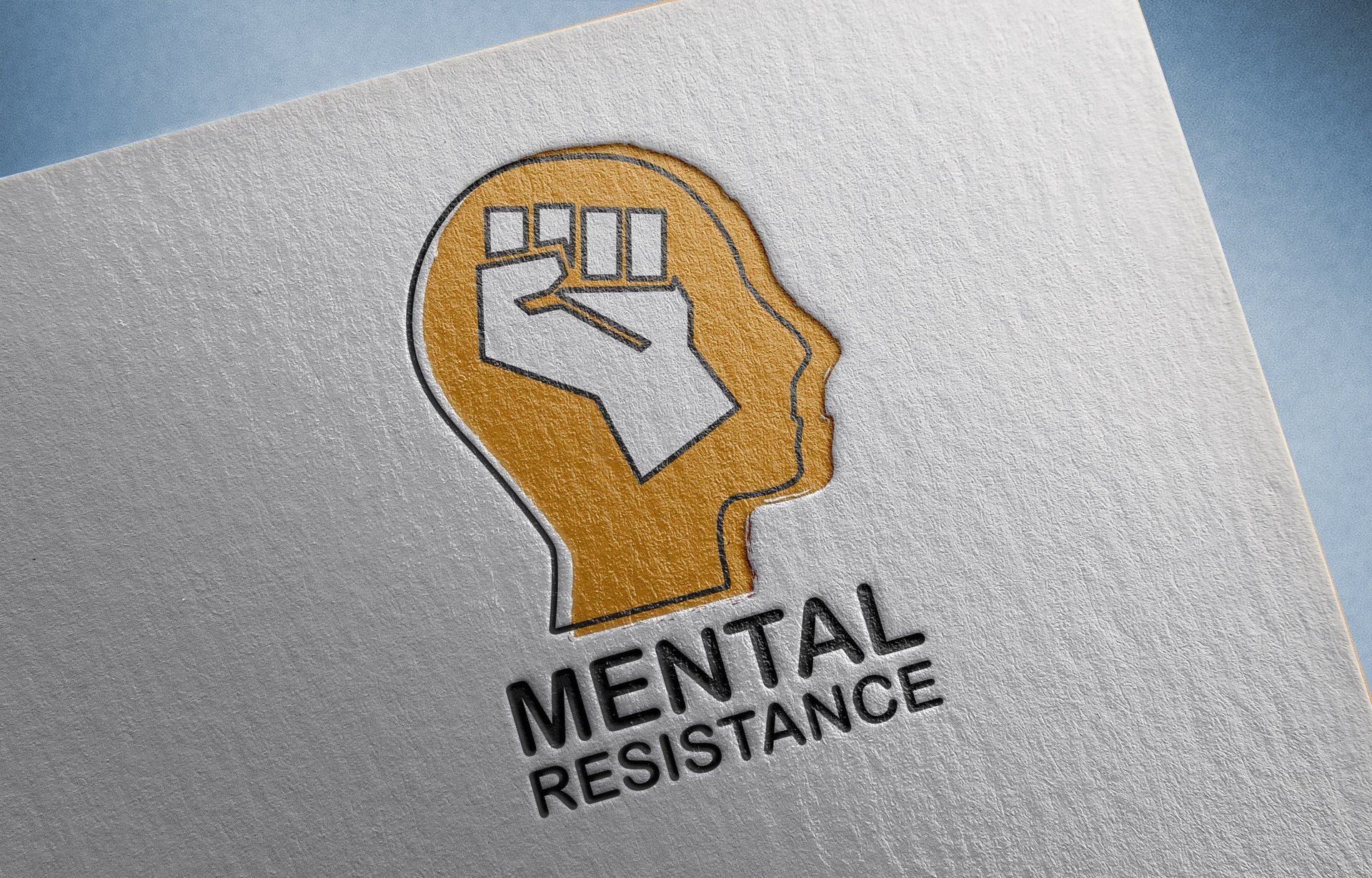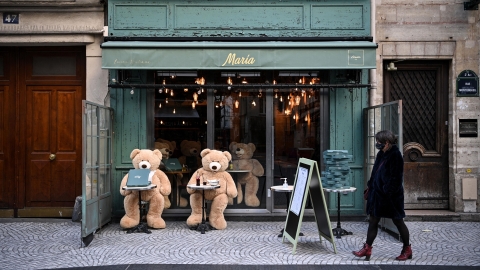Because the mind always wants to protect us from the unfamiliar, when we try new things, the psychological resistance becomes even stronger. The mind's resistance says: "This is new, I don't trust it."
That's why, as people get older, they tend to become more conservative and less receptive to new things. Just like their way of thinking and ingrained habits, they don't want to change or embrace new knowledge.
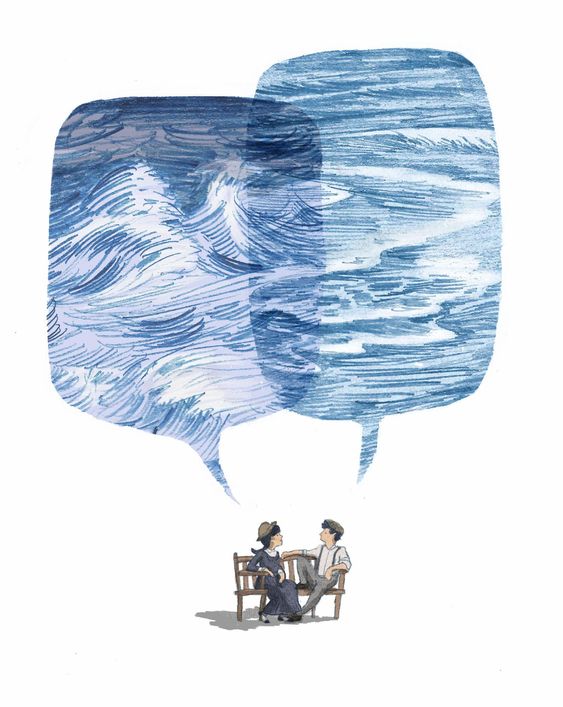
Why is openness necessary in this day and age?
The recent Covid-19 pandemic has highlighted that nothing is permanent; it has changed lifestyles, communication methods, and many human behaviors. Many jobs have disappeared, while others have flourished, particularly in e-commerce. Furthermore, professions previously unknown to our generation, such as influencers, SEO specialists, Facebook Ads professionals, YouTubers, life coaches, online business owners, ride-hailing drivers, and online journalists/magazines, have significantly increased.
Science and technology are constantly developing, and machines are gradually replacing humans in agriculture and industrial production. Recently, MBN - a South Korean television station - surprised everyone by broadcasting the first program hosted by AI (artificial intelligence); even Vietnamese universities now have majors in Artificial Intelligence. But this doesn't mean humans will become unemployed. Machines have higher intelligence than humans, but they still lack (at least for now) something that humans are very proficient at: consciousness.
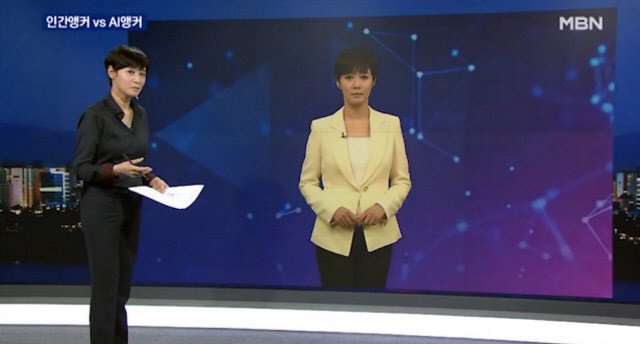
An AI-powered MC hosts the MBN news program.
Be open in even the smallest things.
Even though some things are deeply ingrained in our subconscious, they are not impossible to change. This is discussed in the book.The power of habitAuthor Charles Duhigg said: "Champions don't do extraordinary things. They do ordinary things, but instinctively, fast enough that their opponents can't react. That's because they follow habits they've learned."
Our habits are what we become. So, start changing yourself with small habits, and you'll see amazing results.
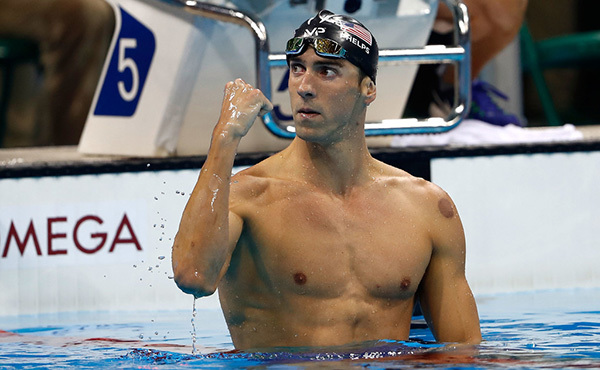
The secret to the success of "American swimmer" Michael Phelps is his training habit.
Adaptability: An innate human ability
Because the brain always resists new things, habits are therefore difficult to change.
According to an article byScienceDailyWhen something is repeated, the brain forms myelin—a substance that coats nerve fibers and can increase the strength, speed, and accuracy of that action. The more an activity, behavior, or task is repeated, the more myelin sheaths are formed around neurons performing different roles. When you continuously practice speaking English, your nerve fibers will be covered with a lot of myelin, helping you become fluent and eliminating the need to look up grammar or conjugate verbs.
The psychological resistance to new things is partly due to myelin, because myelin production is a one-way process; therefore, habits, ways of thinking, and behaviors that we consider "home" are difficult to break. To change a habit, we cannot destroy it, we can only transform it. The only way is to form new layers of myelin around new neurons by repeatedly performing a new behavior. For example, with smoking addiction, addicts find it difficult to quit completely in the early days; they transform it by chewing gum or even another stimulant like vaping or coffee… Or, with incorrect English pronunciation over a long period, learners must become aware of their mistakes and begin practicing the new habit with a certain frequency.
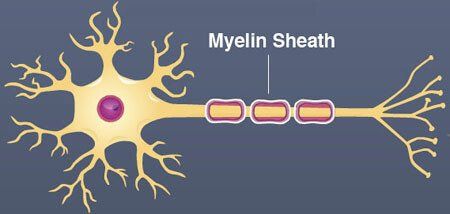
"Talented individuals in all fields, from singers, athletes, and academics to skilled craftsmen, have higher average levels of myelin in the brain hemispheres and relevant muscle groups compared to the average person not working in that field."Famous talent code, Daniel Coyle).
As we can see, creating myelin through perseverance and mastering a positive habit helps us achieve success in life. Since the myelin formation process tends to slow down around age 50, if we continue with boring, harmful habits or produce myelin for worthless activities, we will be wasting our youth meaninglessly.
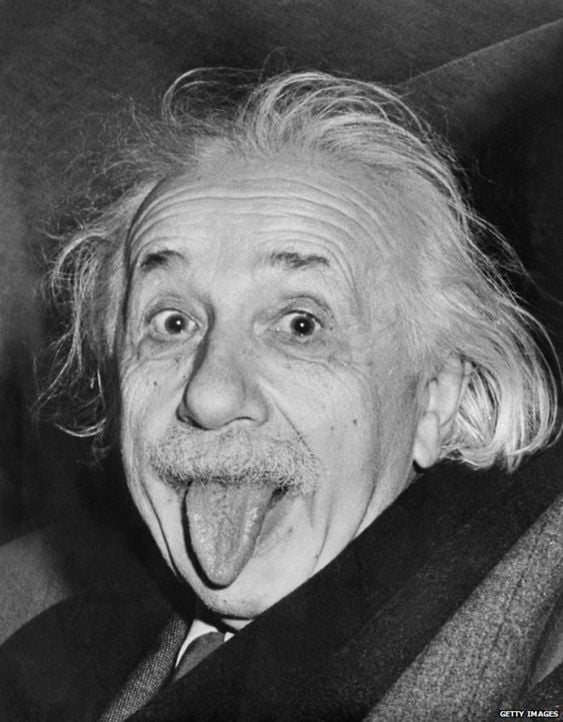
It's not because I'm smart, but because I stick with difficult problems for longer.
Albert Einstein
A study found that Einstein's left parietal lobe, while having an average number of neurons like a normal person, compensated with an extremely high amount of myelin-producing glial cells. Perhaps everyone has their own innate abilities, but the skills we lack can be mastered and become proficient in, all based on our own willpower, determination, and perseverance.
4 stages to learning anything
Starting a new habit can also be applied to a learning model established and developed since the 1970s (by Martin M. Broadwell - Management Trainer and Gordon Training International). Below are four stages to learning anything, according toMindtools.
Unconscious incompetence
This stage is when we lack the ability or knowledge about a particular subject. We may not even be aware that this knowledge and these skills could benefit us later.
For example, a child might not realize the convenience of riding a bicycle, or retailers might not recognize the potential of e-commerce before Covid-19 struck.
We are always ignorant of the things we don't know. But people often tend to refuse to understand new things. Individuals need to recognize their own shortcomings and find the reason and value in a new skill before they can move on to the next stage. The length of time a person spends in stage 1 is inversely proportional to their openness, curiosity, and motivation to learn.
Conscious incompetence
The stage of pain and self-esteem issues. In the second stage, we realize the reason for learning a new skill and its value in addressing our shortcomings. People only truly want to learn when they see the benefits of learning it. But at this time, inadequacies and mistakes become most apparent, making us feel inadequate and more likely to give up.
For example, when learning to ride a motorbike, we all stumble and fall many times. Or interns also have to make mistakes to learn the company culture.
In fact, mistakes are essential, because it is through them that we learn what we need to learn, adjust, and change ourselves. Life is like riding a bicycle; to move forward, we must keep moving.
Consciousness
This is the stage where we understand and master a skill or problem; but still need a certain level of concentration to perform well. The Western saying "practice makes perfect" means we need to practice a lot at this stage for the knowledge to become proficient and deeply ingrained in our minds. Extensive practice helps create myelin sheaths for nerve cells.
For example, when first learning to speak English, many people often hesitate because their brains need to process a large amount of knowledge such as tenses, grammar, vocabulary, pronunciation, intonation, and how to react to others. Once they have spoken enough, they will speak fluently and react more quickly without thinking.
In stage 3, humans expend a considerable amount of energy because they must constantly engage their consciousness to perform new skills; for example, they must always be aware of their mistakes.
Unconscious competence
To reach stage 4, an individual must practice the skill extensively, a process known in psychology as delving into the subconscious. Once neurons are sufficiently covered by myelin, making the brain more receptive to acquiring and developing various skills from those already mastered, it becomes second nature. We can perform it easily and simultaneously master another skill.
For example, riding a motorbike while talking on the phone.
We know and are so familiar with it that we're not even aware we're doing it. This leads to a conflict between two unconscious states (stages 1 and 4). Those in stage 4 view the activity as a natural habit and are unaware of how to perform it; while those in stage 1 are still unaware of how to perform the activity. Compare parents asking about phone usage to the tech-savvy generation – who use their phones so proficiently they unconsciously tap on them while walking. Because these unconscious states are similar, conflicts often arise. Therefore, the key is to be open-minded; we don't have the same experiences as them, and they can't possibly know everything we've been through.
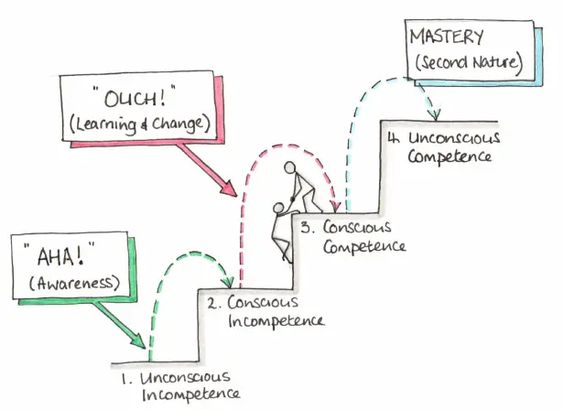
"Prajna"
In Buddhism, there is a concept called Prajna (wisdom).
Prajna is a transliterated word meaning: Wisdom, Enlightenment, Awareness. It means wisdom, but not the wisdom derived from logical reasoning or knowledge; rather, it is the wisdom of comprehensive, uncontradictory understanding. In other words, each of us possesses awareness – wisdom. Knowledge is merely something we will gather along the way. Wisdom is understanding, openness, sagacity, clarity, and high awareness. Therefore, be aware that the ocean of knowledge out there is boundless; open your heart, and you will discover many profound things.

 VI
VI EN
EN




